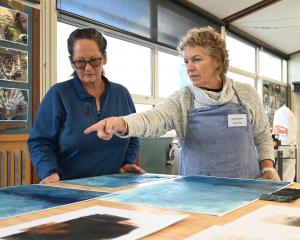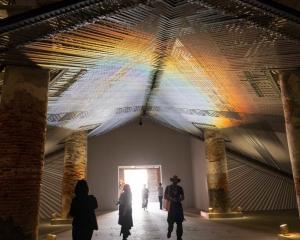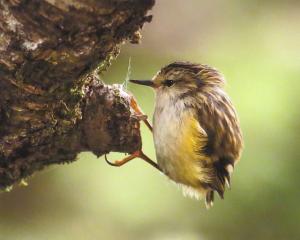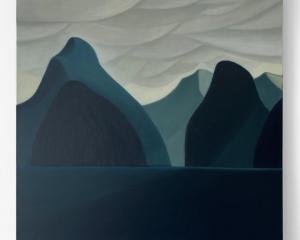You might not be able to see it, but you know something is there.
Award-winning lighting designer Martyn Roberts hopes to confuse and challenge his audience with a show based on light.
Dark Matter is based on his thesis for his master of fine arts degree in theatre studies.
‘‘It's a play on the word. It's a play on the scientific phenomenon of dark matter; on a universe you know is there but does not emit light, doesn't reflect light and you can't see it.''
The University of Otago theatre studies lecturer and Allen Hall manager said the audience would sense something, might see images, but would be left with no real explanation of what they were.
‘‘It is visual haiku.''
The audience would be placed behind a curtain; it would be pitch black and void-like, he said.
‘‘You'll see something and then the curtain will close. Then it will go again.''
It was the first time he had been able to bring to life for the public the ideas he worked on during his thesis.
The work had been seen only by the examiners and a small group prior to this.
‘‘It's liberating in that I have a lot of confidence in it: testing it with an audience that is far more broad and could be a harsher audience in most cases. I'm excited and nervous.''
The work was quite different from his day job, which was to highlight the work of others, especially in theatre.
However, he was able to use light more expressively when lighting dance and opera or musicals.
‘‘With this, you can go all out, as light is the central character.''
In Dark Matter there would also be two people in the space and sound would accompany it, although light was still the central character.
‘‘I hope it brings people to the realisation that light can be an expressive medium, not just something to see by. That they experience it in a different way and enjoy it on that level; not something they'd ordinarily see.''
The work was the culmination of many years in the lighting industry, although it was a career he initially stumbled across by accident while doing his theatre degree at Auckland University.
An exercise he had to do involved lighting and it opened his eyes to a alternative world and an alternative way to tell a story.
Without formal training he did not know the rules, which meant he broke a lot of them, but the audience responded, he said.
Dance was his favourite medium to light.
He moved into his role at Allen Hall in 2007 and really loved it.
‘‘I continue to practise as a designer doing shows for the Fortune, Otago Opera and dance companies when I can fit it in around full-time work here.''
Lighting was a ‘‘laborious art'' which required patience and time to set up, test and tweak.
‘‘I like that you actually have to spend time setting up and playing with it and then seeing the result.
‘‘If you rush it, lighting is unforgiving. If you rush it, it will show itself as rushed, as it will pull your eye away from what you are supposed to be looking at.''
Mr Roberts was able to share his technical skills with students through an elective paper that was always full.
‘‘I'm excited by what they bring to the classroom, the new ideas. It's healthy and important.''
Not having someone to teach him meant he was eager to share his skills but without dampening down the students' creativity.
‘‘I learnt by trial and error and it worked for me.''












